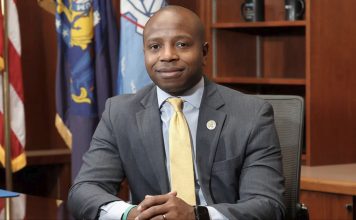In one of the most far-reaching social policy moves in the corporate world, the National Association of Realtors, called the nation’s largest trade organization, has revised its professional ethics code to ban “hate speech and harassing speech” by its 1.4 million members.
The sweeping prohibition applies to association members 24/7, covering all communication, private and professional, written and spoken, online and off. Punishment could top out at a maximum fine of $15,000 and expulsion from the organization.
NAR’s decision, allowing any member of the public to file a complaint, has alarmed other real estate agents, and also some legal and ethics experts, who say the hate speech ban’s vagueness is an invitation to censor controversial political opinions, especially on race and gender.
“The dam has broken and other organizations will look at this,” predicted Robert Föehl, a professor of business ethics and business law at Ohio University.
“If this is good for real estate agents, why not attorneys, why not doctors?” Föehl said. “They’re going to be pressured to do what NAR has done. And that pressure is going to be very real.”
NAR’s hate speech policy is noteworthy because it sweeps up 1.4 million people under an ethics standard that explicitly places limits on private speech, to be adjudicated through formal procedures. The organization’s new policy provides an avenue for the NAR to investigate, fine and potentially expel real estate agents who insult, threaten or harass people or social groups based on race, sex, gender or other legally protected characteristics.
Eugene Volokh, a UCLA law professor who specializes in the First Amendment, said such policies should be assessed not for their good intentions but for their potential to misfire.
“What we’re talking about is a new blacklist,” Volokh said. “One of the things that’s troubling about the National Association of Realtors’ position is that it is trying to deploy the organized economic power of this group in order to suppress dissenting political views among members.”
Some real estate agents fear the new speech code will be used to censor agents who express disapproval of affirmative action, gay marriage, transgender pronouns, Black Lives Matter, undocumented immigrants or other politicized issues.
Among those caught up in the uncertainty are real estate agents who are Christian preachers or Sunday school teachers, or anyone who expresses traditional religious views on gender and sexuality that are out of vogue in some circles today.
“Are we worried about losing members? We may, but I’m certainly not losing sleep over that,” said Matt Difanis, the Champaign, Ill., broker who chairs NAR’s Professional Standards Committee, in a Dec. 16 training session.
NAR does not issue real estate licenses – that function is the domain of state licensing boards – so expulsion is not an automatic banishment from the profession. But in many parts of the country, NAR membership is required to gain access to the Multiple Listing Service, a searchable online database that sorts available real estate properties by parameters such as square footage, acreage, architectural style and much more.
Private employers and membership organizations are not bound by the First Amendment. And private employers are protected by the “at will” employment doctrine that allows them to fire workers for arbitrary reasons (as long as they are not discriminating based on race, sex, religion or other protected classes). About two dozen states have laws limiting the ability of a private employer from firing a worker for political speech or other personal conduct the boss might not personally like.
Nevertheless, there are signs that the expansion of such policies may be bumping up against other rights. Last month, a federal court struck down a professional conduct rule for Pennsylvania lawyers; the rule stated that it is professional misconduct for a lawyer to express or engage in bias, prejudice, harassment or discrimination. The rule was limited to “the practice of law,” but it expanded that concept, adding continuing education, seminars, conferences, and bar association activities where education credits are offered.
The rule was challenged by Zach Greenberg, a staff attorney for the Foundation for Individual Rights in Education (FIRE), who said that it would expose him to endless ethics complaints because his work often involves citing examples of speech many people find offensive, including the N-word and others. The judge agreed.
“The big issue with these rules is that they create unbridled discretion for organizations to enforce the rules however they like,” Greenberg said by phone. “That’s a really dangerous game they’re playing because the question of what is offensive is really in the eye of the beholder.”
Difanis described the process of evaluating ethics complaints as “making judgment calls within procedural guardrails,” to be undertaken by hundreds of local panels, usually comprising three or five Realtors.
The uncertainty is causing angst in the profession and beyond.
Föehl noted that it’s virtually unheard of for a membership organization to adopt such a restrictive policy with respect to its members.
“It feels unprecedented,” Föehl said. “The stretch and reach into the personal lives of the association members is a very intrusive move.”
Reposted with permission, The Center Square





















![WATCH: Elon Musk Town Hall Rally in Green Bay [FULL Video]](https://www.wisconsinrightnow.com/wp-content/uploads/2022/04/Elon_Musk_3018710552-356x220.jpg)











